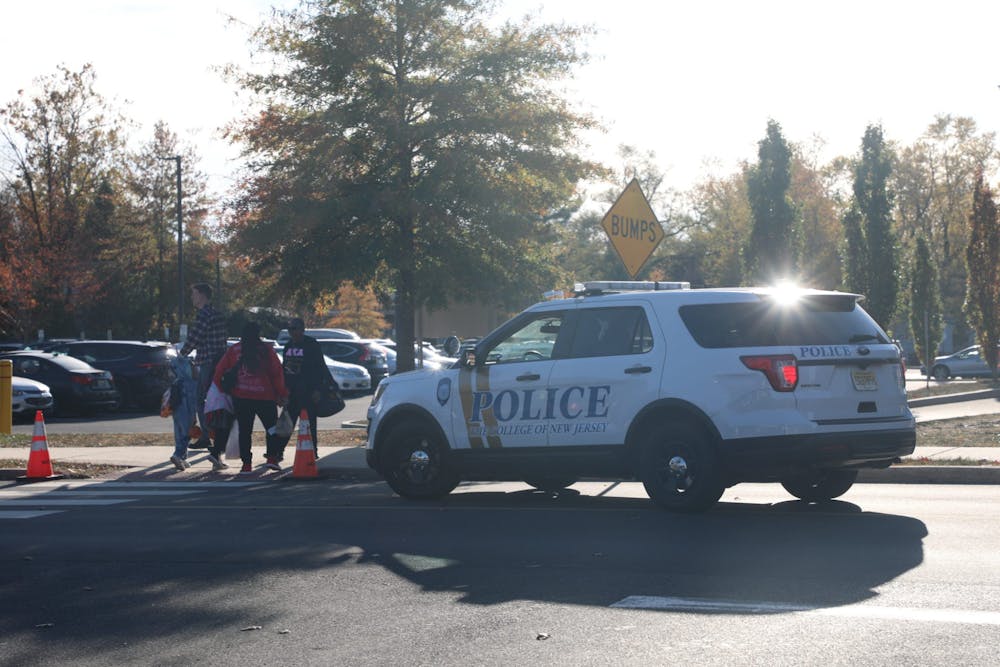By Isabella Darcy
News Editor
Campus Police received 23 alcohol-related calls between the start of the semester and Nov. 14, according to data obtained by The Signal. While 23 calls is higher than in recent years, it is in line with pre-COVID-19 pandemic numbers.
The pandemic forced all students to live off-campus in the fall of 2020. It was not until multiple semesters later that residence halls were fully reoccupied. Alcohol-related calls to Campus Police fell briefly during the pandemic, but have since been on the rise.
“Especially fall semesters, we tend to have a higher alcohol-related calls than spring semester,” Campus Police Lieutenant Matthew Mastrosimone told The Signal. “I think it’s a lot to do with students learning and making healthy decisions going through life.”
As of Nov. 14, Campus Police received 32 alcohol-related calls since the beginning of this calendar year. This marks the first time the annual total has exceeded 30 since before 2020.
Alcohol-related calls include numerous types of incidents where alcohol consumption is involved. This includes, but is not limited to, underage intoxication, sexual assault, driving while intoxicated, simple and aggravated assault, mental health intervention and warrant arrests.
Calls usually come from freshmen residence halls, according to Mastrosimone. However, the lieutenant said that it is not uncommon for calls to also come from upperclassmen buildings.
When Campus Police receives alcohol-related calls, TCNJ and local EMTs respond alongside officers. TCNJ EMS supervisor Scott Sferra told The Signal that TCNJ EMTs are trained to care for students who are under the influence.
“They’re all trained to ensure that the patient comes first and that we fix the issues at hand,” Sferra said.
Over 65% of alcohol-related calls this semester resulted in someone being transported from campus to a hospital. Transports occur when a person wants or needs more medical attention than EMTs can provide.
The reason some students call Campus Police when alcohol is involved is because they, or someone they are with, need medical support. The College’s Amnesty Policy encourages students and Recognized Student Organizations to call for help when someone is under the influence and in danger. If the students involved properly follow Amnesty procedures, they will not be charged under the Student Conduct Code or the Recognized Student Organization Rights and Responsibilities Policy.
“I believe that with Amnesty, more students are coming out and asking for help for other students and their friends than they did before,” Mastrosimone said. “Amnesty really helped us with giving the right medical needs for students.”
The College also has resources that encourage students to make safe choices and seek help when they need it. Alcohol and Drug Support Services offers counseling, recovery support and educational programming to teach prevention and harm reduction.
Some students told The Signal that they feel the College does a good job of educating them on the Amnesty Policy and what to do if they find themselves in an alcohol-related situation. However, those students also said they believe the College does not provide much prevention education.
Daniel Martin, a freshman biology major, said he thinks the College does not do enough to teach students how to drink responsibly. He recalled discussions about alcohol primarily occurred during Welcome Week when he was with his community advisors.
“Our CAs really hound in on the Amnesty Policy,” Martin said.
Sabrina Sanchez, a senior psychology major, also said she does not believe the College has provided enough education to students about how to safely consume alcohol.
“I definitely think the school could be doing better,” Sanchez said. “Especially with incoming freshmen since that’s a really important issue.”
The last time Sanchez can recall the College providing education about alcohol consumption was at the beginning of her freshman year when she completed alcohol-related online modules. However, other students could recall other ways the College educates students about safe alcohol consumption.
“There is some effort to show us how much is safe consumption,” said Aubrie Schnaudt, a freshman biology major. “I see it on Instagram sometimes, and there’s bulletin boards in my building.”
As the fall semester begins to wrap up, Campus Police will soon know if the final annual number of alcohol-related calls stays on par with or exceeds pre-pandemic numbers.







